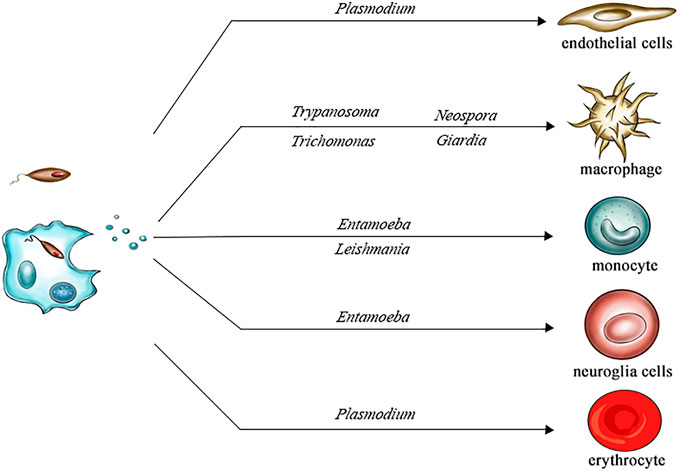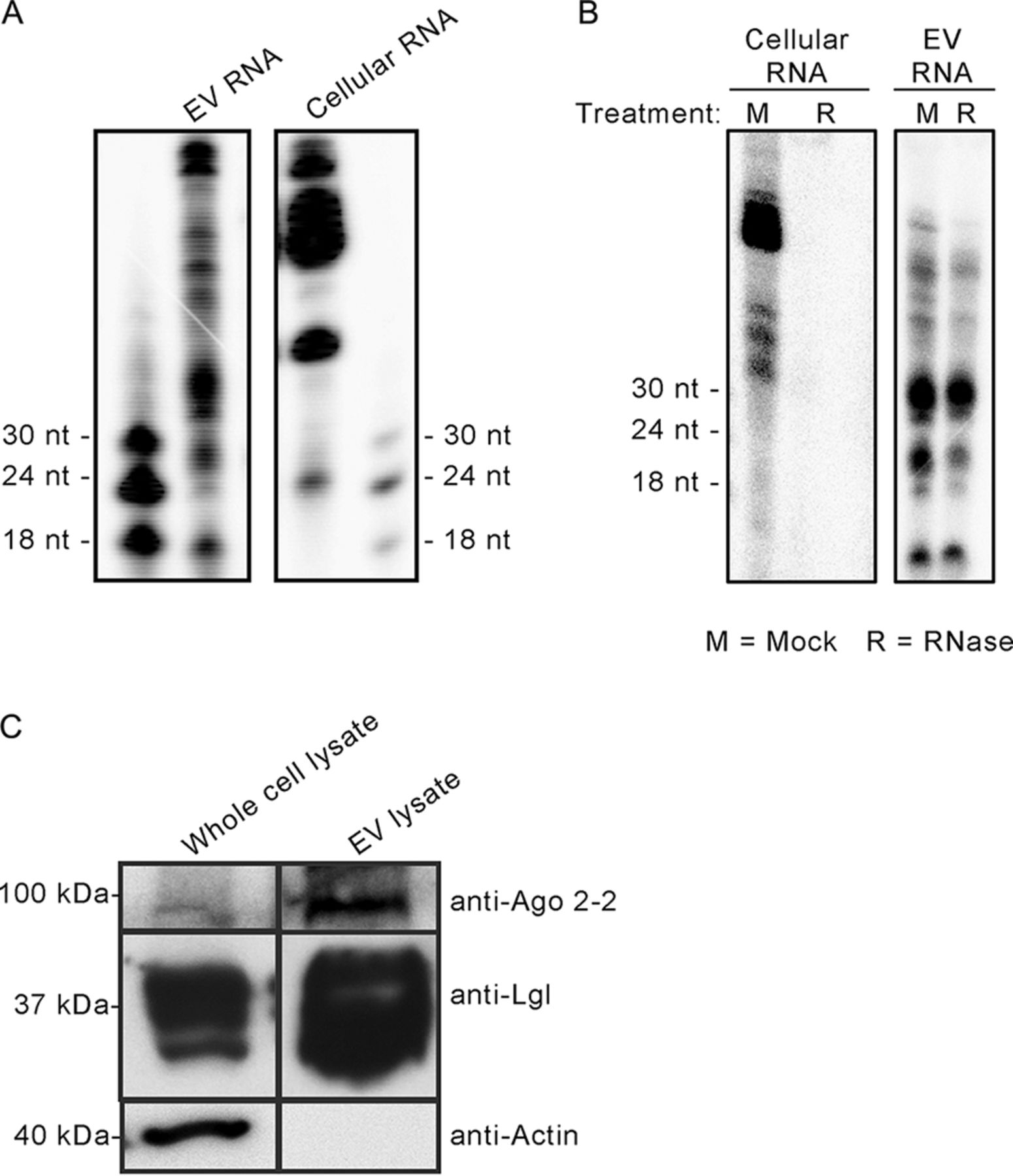Protozoon-derived Exosome Research and Applications
Protozoon-derived Exosome Research and Applications focuses on protozoan organisms as the study subject, utilizing exosome isolation, purification, characterization, and multi-omics analysis to systematically investigate the roles of protozoon-secreted exosomes in parasitic infection, host immune modulation, and pathogenic mechanisms. This service supports research in infectious disease pathogenesis, biomarker discovery, and the development of novel diagnostic and therapeutic strategies.

Wang X. et al. Front Genet. 2022.
Figure 1. Extracellular vesicles shed by different parasites infect different cells.
Protozoa, as a major group of human and animal pathogens, are widely distributed across diverse natural hosts and ecosystems, causing various infectious diseases such as leishmaniasis, amoebic meningoencephalitis, giardiasis, and malaria. Recent studies have revealed that protozoa release nanoscale extracellular vesicles—exosomes—to engage in complex molecular communication with host cells. These exosomes carry and transport functional molecules such as proteins, lipids, and RNAs, playing critical roles in modulating host immune responses, promoting infection spread, maintaining parasite homeostasis, and even altering host cell signaling and gene expression.
MtoZ Biolabs offers Protozoon-derived Exosome Research and Applications service including the isolation, characterization, and molecular profiling of protozoon-derived exosomes, supporting researchers in uncovering the mechanisms of protozoan infection and host interaction networks, to lay the groundwork for the development of novel vaccines and the discovery of reliable biomarkers.
Analysis Workflow
The protozoon-derived exosome research workflow at MtoZ Biolabs includes the following core steps:
1. Exosome Isolation and Purification
Exosomes are isolated and purified from samples using differential ultracentrifugation, density gradient centrifugation, or commercial isolation kits to ensure high yield and purity.
2. Exosome Characterization
Exosomes are characterized by nanoparticle tracking analysis (NTA), transmission electron microscopy (TEM), and Western blot to verify particle size, morphology, and expression of characteristic proteins.
3. Cargo Analysis
The exosomal contents are analyzed using integrated proteomics, transcriptomics, and metabolomics platforms to explore the functional components carried by protozoon-derived exosomes.
Applications
Protozoon-derived Exosome Research and Applications service by MtoZ Biolabs is suitable for a wide range of studies, including:
Parasite Infection Mechanism Studies
Reveal how pathogens such as Leishmania, Trypanosoma, and Giardia use exosomes to modulate host immunity and influence tissue pathology.
Vaccine and Therapeutic Strategy Development
Exosomal antigenic proteins can serve as subunit vaccine components or induce broad-spectrum immune responses.
Exosome-Based Biomarker Discovery
Identify protozoon-specific molecules in exosomes for early infection diagnostics, disease staging, and treatment monitoring.
Research on Protozoon Life Cycle and Physiology
Investigate how exosomes participate in key processes such as encystation and developmental transitions.
Service Advantages
1. Efficient Exosome Isolation and Purification: Multiple method options tailored to various protozoan types.
2. Integrated Multi-Omics Analysis: Comprehensive profiling through proteomics, transcriptomics, and lipidomics.
3. Customized Experimental Design: Fully personalized workflows and data interpretation based on client-specific research goals.
4. Translational Research Support: Designed to facilitate the transition from fundamental research to vaccine development and drug target screening.
FAQ
Q. Can Proteomic Analysis Identify Protozoa-Specific Virulence Factors in Exosomes?
Yes. High-resolution mass spectrometry combined with deep proteomics and species-specific databases (e.g., TriTrypDB) allows for reliable identification of protozoan virulence factors such as trans-sialidase (TS) proteins. Background subtraction and host protein exclusion are included to ensure accurate annotation and minimize contamination.
Q. Can Exosomal RNA-Seq Distinguish between Host and Protozoa-Derived RNA?
Yes. After RNA extraction and library preparation (e.g., small RNA-seq or total RNA-seq), dual genome alignment (host + protozoan) enables species-specific RNA annotation. Protozoan-derived small RNAs (e.g., tRNA fragments, snRNAs, lncRNAs) can be further resolved using dedicated or custom-built databases. This method is applicable to Leishmania, Trypanosoma, Giardia, and other common protozoan models.
Case Study
In this study, researchers identified and characterized extracellular vesicles (EVs) secreted by Entamoeba histolytica, highlighting their role in intercellular communication during parasite development. EVs were detected in culture supernatants and displayed typical exosomal morphology and size. Proteomic analysis revealed enrichment of vesicle formation proteins, signaling molecules, metabolic enzymes, and cytoskeletal components. Additionally, the EVs selectively packaged small RNAs (~27 nucleotides), predominantly antisense sRNAs, along with RNA interference (RNAi) machinery proteins. Functional assays demonstrated that EVs from encysting-stage E. histolytica promoted cyst formation in other parasites, while those from trophozoites inhibited encystation.

Sharma M. et al. Infect Immun. 2020.
Figure 2. Small RNAs are selectively packaged in the amebic EVs.
How to order?







